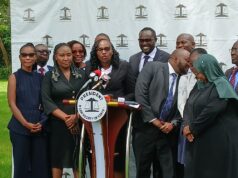
You Need God
It is inevitable in a fallen world that offenses will come. Each time we face a choice to nurse unforgiveness and bitterness or receive the offense as an opportunity to grow in God. Too many of our prayers are about fixing some person or situation to our satisfaction, instead of getting more of God. He says, “You don’t need to fix the person or circumstances. You need Me! Put your hand in Mine! Stay committed to seeing Me in this. Come with me into a deeper place in My heart.”
David gave us a model of how to pray in time of great distress. Read Psalm 63:1-8, written by David while he was in the desert, fleeing for his life either from Saul (1 Samuel 23:14) or from his rebellious son (2 Samuel 15:23,28). We can put ourselves in David’s place, remembering a time when we were in difficulty, and it felt like someone or something was pursuing us to destroy us. Perhaps we are there now, with all the mixed emotions that David must have felt of fear, doubt, anger, and pain at being alienated from someone significant to us.
In his desperate situation, what David prayed for might surprise us. His focus was God, not his dire and desperate circumstances or his broken heart. David did not ask for protection, vindication, a quick resolution, a happy ending, or countless other good ideas and fixes that we would have instructed God to provide. God alone and His covenant-keeping relationship was the centerpiece of Psalm 63:1-8. David’s heart was fixed (Psalm 57:7). God’s loving kindness was better than life itself, and David’s deep satisfaction was in God and his presence, nothing else and nothing more. The nearness of God was his good (Psalm 73:28), and he testified that he was tasting the goodness of God. He could sing in the middle of the dark night of his troubles.
In Acts 4:23-31 Peter and John had been arrested, jailed, and threatened for speaking and preaching in the name of Jesus. Upon their release, Peter and John went back to God’s people and reported what the authorities had said. Study the response of the believers gathered there. They prayed a model prayer. “Sovereign Lord, you made the heaven and the earth and the sea, and everything in them. You spoke by the Holy Spirit through the mouth of your servant, our father David: ‘Why do the nations rage and the peoples plot in vain? The kings of the earth take their stand and the rulers gather together against the Lord and against his Anointed One.’ Indeed Herod and Pontius Pilate met together with the Gentiles and the people of Israel in this city to conspire against your holy servant Jesus, whom you anointed. They did what your power and will had decided beforehand should happen. Now, Lord, consider their threats and enable your servants to speak your word with great boldness. Stretch out your hand to heal and perform miraculous signs and wonders through the name of your holy servant Jesus.
”
Their prayer was focused on their Sovereign Lord and His sure purposes. Of the seven verses, six are taken up with the praises of God, His sovereignty and power. With one sentence, they delivered their adversaries and all offenses into His hands. In one sentence, they requested that God take note of the threats and give them boldness and confidence to speak of Jesus, while God does what He does best, that is show Himself strong through the name of Jesus. They did not ask for vindication, stage a political action, hold a rally, or even pray for the authorities to act better. They knew that more than getting wrongs righted, they needed more of God on the scene.
In Acts 4:31, God affirmed their prayer and their purity of heart by shaking the place where they were praying, giving them a fresh touch of His Holy Spirit and empowering them with great boldness to speak His Word. When they gave up the offense to God, He gave back more.
You may be saying, “But they really did me wrong!” Yes, but when we give up the offense, God gives back more. Offenses carry weight, and an apology never balances the scales. God wants to put His weight on the scale and restore more than what was lost in the offense. God turns the plans of the enemy into good (Genesis 50:20).
With David and the early church tremendous offenses had taken place: rejection, rebellion, lies, abuse, accusation, injustice, and shame. Yet neither David nor the early church nursed and rehearsed the offense. It was not made the centerpiece of their hearts and prayers.

When we are thinking, “They owe me,” or “How can I get back at them?” or “When will they get their just recompense?” or “When will they be known for who they are?” the offender still has control over us. We are allowing the enemy to plunder and ravage our lives still further. We must pray God-based prayers, not offense-based prayers. We may think we need our offenders to say, “I am sorry. Please forgive me.” We do not need the injustice avenged or an apology as much as we need God and what He will give us, far more than they could give us with “I’m sorry.” God would say to us, “You don’t need an apology. You need Me. You are blessed when men persecute you. Put yourself in My bosom, the place of healing and freedom. I am your very great Reward.”
Trust God and live in these truths by the power of the Holy Spirit. Get into freedom by the Spirit of truth, because when you know the Truth and live the Truth, He will set you free.




